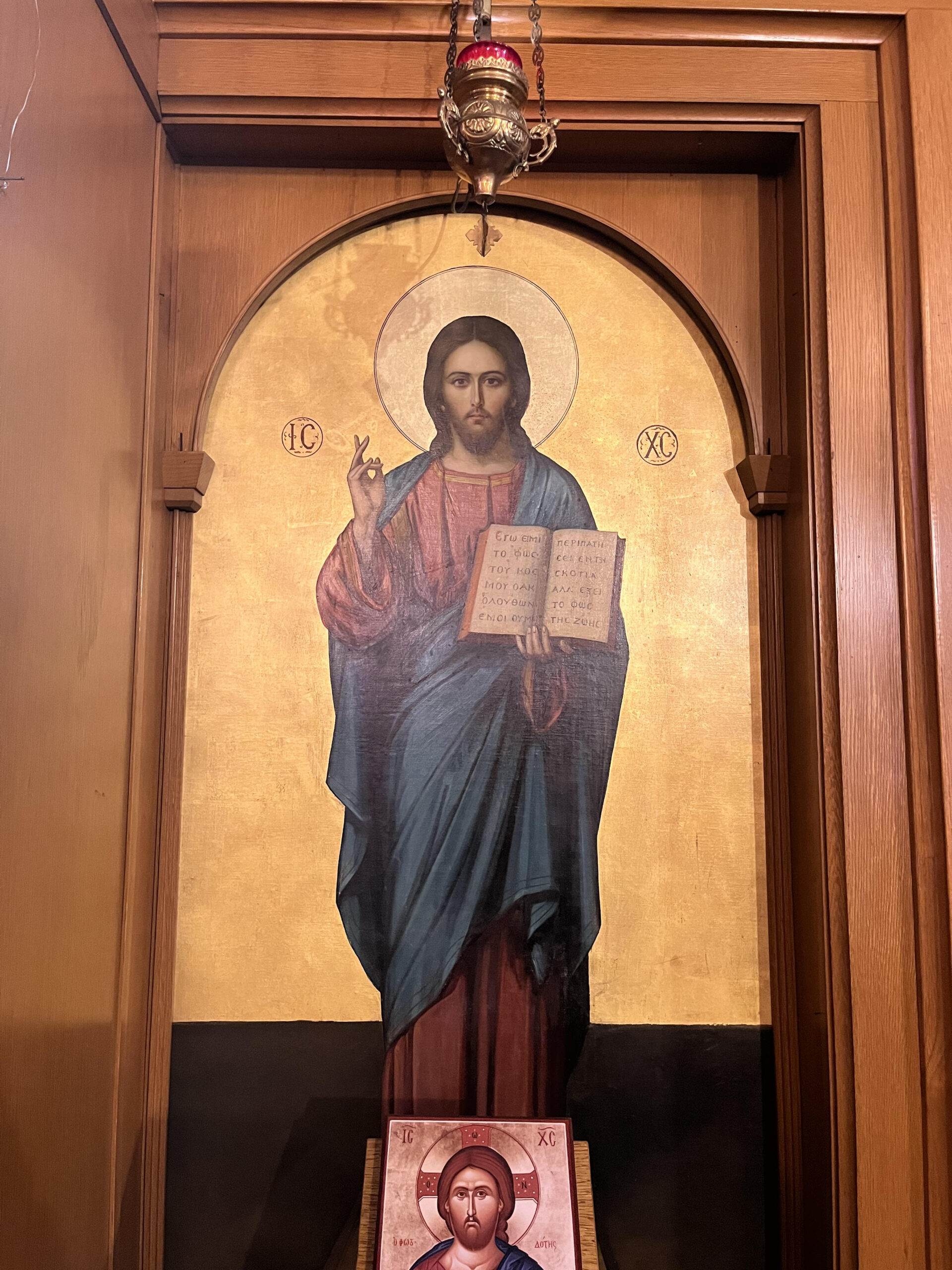The saying is sure and worthy of full acceptance. For to this end we toil and strive, because we have our hope set on the living God, who is the Savior of all men, especially of those who believe. Command and teach these things. Let no one despise your youth, but set the believers an example in speech and conduct, in love, in faith, in purity. Till I come, attend to the public reading of scripture, to preaching, to teaching. Do not neglect the gift you have, which was given you by prophetic utterance when the council of elders laid their hands upon you. Practice these duties, devote yourself to them, so that all may see your progress.
I Timothy 4:9-15 (Epistle of the 32nd Sunday)
I’m continually amazed how many pieces of advice St. Paul was able to squeeze into just a few verses of scripture. Today’s Epistle is from a letter Saint Paul wrote to Timothy. Most of St. Paul’s Epistles were written to entire church communities, like Corinth, Rome, Ephesus, and Philippi. Today’s Epistle was written to a person. While St. Paul’s Epistles to the communities apply to every modern church community, his Epistle to Timothy can be read as a letter to each individual Christian, including you and me. So, imagine that this passage is written specifically to YOU.
When St. Paul tells Timothy “command and teach these things,” (I Timothy 4:11) he is referring to Timothy preaching about setting our hope on the living God, as the Savior of all people. Two things stand out here. First, St. Paul refers to the Savior, who is of course Jesus Christ. In the early years of Christianity, people weren’t sure what to make of who Jesus was. Remember this is a time when everyone was a “convert” to the faith, both Jews and Gentiles alike. So, St. Paul is reiterating that Jesus wasn’t just a prophet, teacher, and healer, but that He was, and is, the Savior. Secondly, he deliberately uses the word “living” in front of the word “God.” We often think of and speak of God as a faraway entity. Saint Paul reminds us that God is not an entity, He is God, and that He is alive both in and around us. He is not an heirloom (let’s take Him off the shelf on holidays) God, or a nostalgic (let’s tell nice stories about Him) God. He is a living God, whose energies bring great blessings to His people. The power of God, and the joy of God is accessible to each of us, today. The intimacy of prayer, the grace of the sacraments, the hope of repentance, as well as the majesty of His creation—these are signs of a living God, not an heirloom God.
Saint Paul goes on to tell Timothy “Let no one despise your youth.” (4:12) I remember when I was a younger priest, both young in age and in experience, how while I respected my elders, I felt they sometimes looked down on me because of my age. It affected my confidence at times. It’s a good thing to judge people based more on what they do, rather than on their age. There are plenty of competent young people and incompetent older people. Timothy was young both in age and in his faith, but Saint Paul encouraged him to carry himself with confidence and with dignity, to lead by example “in speech and conduct, in love, in faith, in purity.” (4:12) Many times people “despise” younger people who do not conduct themselves well in these areas. I suppose if a young person wants to impress an older person, being an example in these areas likely would go a long way.
Saint Paul reminds Timothy that the basic functions of the church are worship (public reading of scripture), preaching and teaching. Timothy was a bishop in Ephesus during the late first century. This was a reminder from St. Paul that scripture, preaching and teaching were to be the cornerstones of his ministry. He references an “ordination,” by the laying on of hands of the “elders”, something that is still done today in Orthodox Churches by the Bishops. “The gift” (4:14) to which Saint Paul refers to is the grace given to Timothy at his “ordination”, a grace that gave him the ability to speak like the prophets of old, with a bold and zealous voice, to proclaim the Gospel of Christ to the people.
Finally, Saint Paul reminds Timothy that he should be devoted to practicing his duties of Scripture reading, preaching and teaching. In doing these things, many will see his progress, and even those who “despise his youth” will be respectful of his sincerity.
The lessons from this Epistle are for us to set our hope in God, that God is a living God, that we should walk with confidence regardless of our age as we are doing the things that please God, the people will respect us based on the example we set, that the principle work of the church involves worship, preaching and teaching, and that we should not neglect the gifts God has given us, but use them in a way that people will see spiritual growth and progress in us. Truly lots of good advice for people of any age.
You stripped Hades of plunder, and humanity You resurrected by Your resurrection, O Christ. Do therefore now account us worthy with a pure heart to praise You and glorify. (Third Resurrectional Praise, 1st Tone, Trans. by Fr. Seraphim Dedes)
Have hope in God, set a good example, use His gifts!
